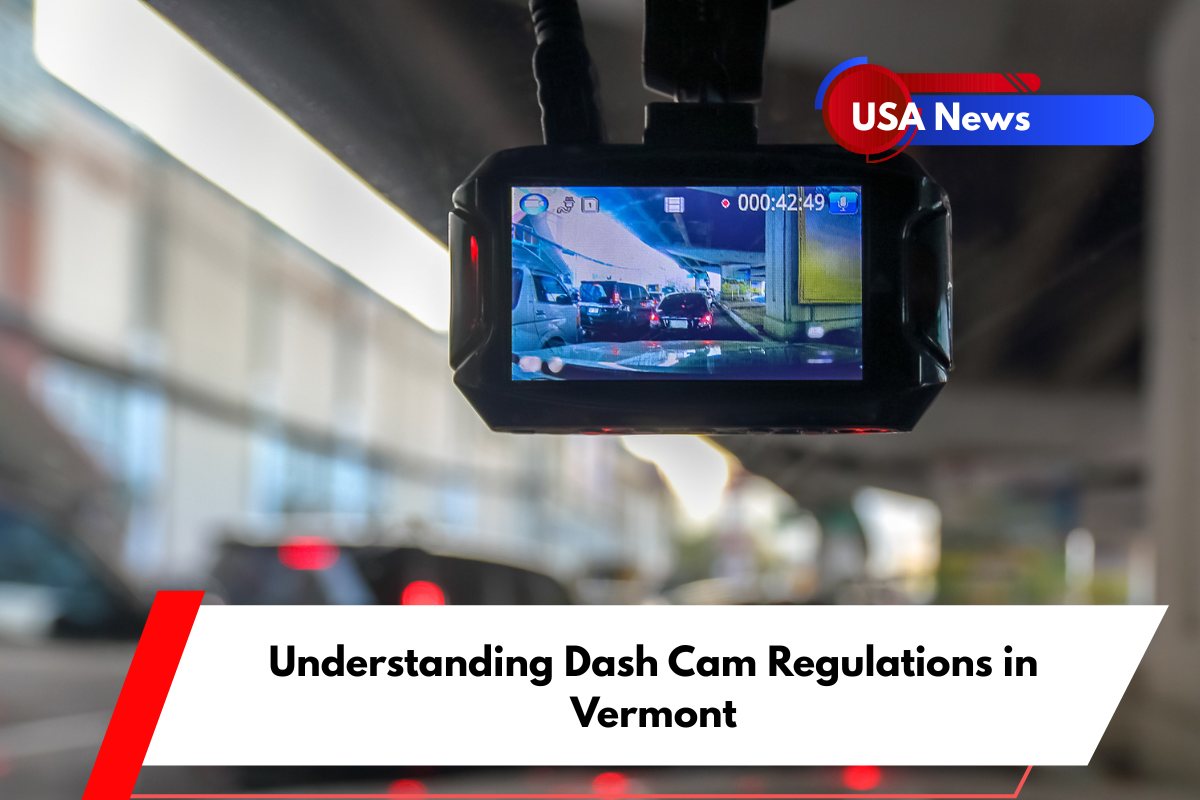If you’re thinking about installing a dash cam in your vehicle in Vermont, it’s important to understand the state’s regulations to ensure you’re in compliance.
While dash cams are legal, Vermont has specific rules in place to ensure that they don’t obstruct the driver’s view or create privacy concerns. Here’s a breakdown of what you need to know.
Dash Cam Installation Requirements
In Vermont, dash cams are legal as long as they are mounted properly and do not block the driver’s view. The state has clear guidelines on where and how you can install a dash cam:
Lower right-hand (passenger) corner: You may mount a dash cam here, but it must be less than 4 inches in height and no more than 12 inches in width. This placement ensures that the camera does not obstruct your view while driving.
Upper left-hand (driver) corner: This is another possible location for mounting your dash cam. However, in this spot, the camera must be no larger than 2 inches in height and 2.5 inches in width. This smaller size ensures that it doesn’t interfere with the driver’s line of sight.
These size and placement restrictions are specifically designed to keep the driver’s view of the road clear and unobstructed, ensuring both safety and compliance with the law.
Audio and Privacy Considerations
While Vermont does not have specific laws regarding the audio recording capabilities of dash cams, it’s important to keep in mind potential privacy concerns.
If your dash cam records audio, it’s considered good practice to inform any passengers in your vehicle that audio is being recorded. This helps prevent any privacy issues, especially if the audio captures private conversations without consent.
Other Key Points
Rear-view cameras: These are generally not restricted in Vermont as long as they do not obstruct the driver’s view. Dash cams and other types of cameras can be mounted elsewhere in the vehicle, but they must still comply with the requirement of not blocking the driver’s view of the road.
Court admissibility: Dash cam footage is generally admissible in court, provided that the recording follows the legal guidelines for placement and size. As long as the dash cam is properly installed and complies with Vermont’s rules, the footage can be used as evidence if necessary.
Sources:
1. https://www.gpsinsight.com/blog/are-dash-cameras-legal-in-commercial-vehicles/
2. https://www.ddpai.com/blog/dash-cam-laws/
3. https://www.expertmarket.com/dash-cams/dash-cam-laws-by-state
4. https://facit.ai/insights/dash-cam-laws-by-state













